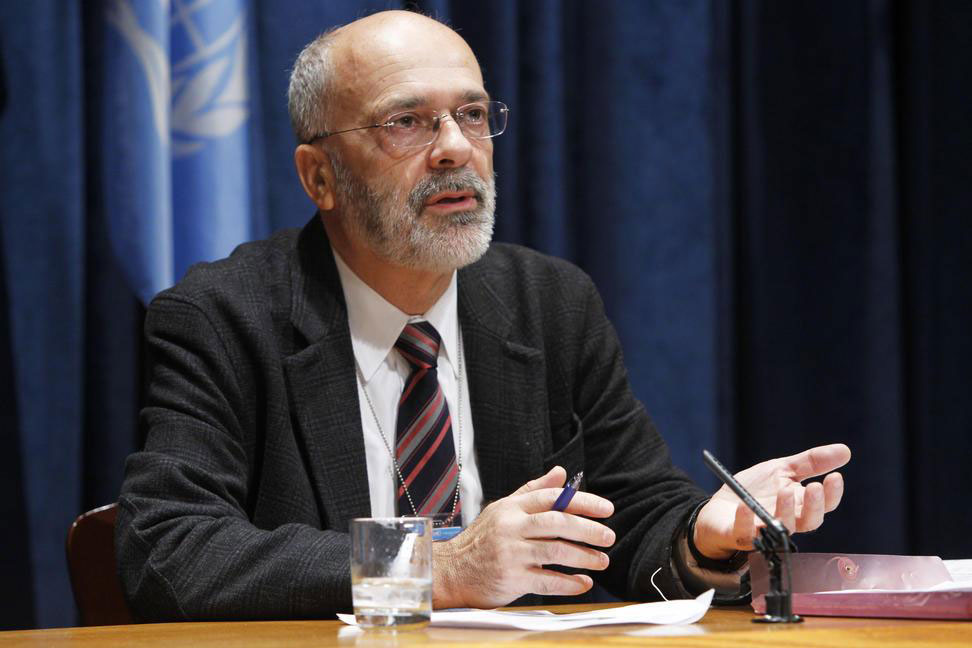UN human development rankings place Norway at the top and DR Congo last
UN human development rankings place Norway at the top and DR Congo last
02 November 2011
The HDI, issued today by the UN Development Programme (UNDP), combines measures of life expectancy, literacy, school enrolment and gross domestic product (GDP) per capita. This year a record 187 countries and territories were measured – up from 169 last year.
Norway retained its top position from last year, ahead of Australia and then the Netherlands, while the United States, New Zealand, Canada, Ireland, Liechtenstein, Germany and Sweden comprise the remainder of the top 10 in that order.
But when the HDI is adjusted for economic inequality, the standings of some countries fall significantly. The US falls from four to 23, the Republic of Korea (ROK) from 15 to 32, and Israel from 17 to 25.
In the case of the US and Israel, their positions are affected by income inequality, although health care is also an influencing factor for the US, while education gaps between generations are the main reason for the ROK’s ranking change.
In contrast, other countries’ standings improve after the HDI has been adjusted for inequality. Sweden jumps from 10 to five, Denmark from 16 to 12, and Slovenia rises from 21 to 14.
“The inequality-adjusted Human Development Index helps us assess better the levels of development for all segments of society, rather than for just the mythical ‘average’ person,” said Milorad Kovacevic, chief statistician for the Human Development Report that accompanies the index.
“We consider health and education distribution to be just as important in this equation as income, and the data show great inequities in many countries.”
The report, Sustainability and Equity: A Better Future for All, notes income distribution has worsened in most of the world and reveals Latin America has the largest income inequality, although it is more equitable than sub-Saharan Africa and South Asia in life expectancy and schooling.
The report also shows that countries at the bottom of the list still suffer from inadequate incomes, limited schooling opportunities and low expectancy rates due to preventable diseases such as malaria and AIDS.
The report stresses that a lot of the problems encountered by countries with low rankings are worsened by armed conflicts and its devastating consequences. In the DRC, the country with the lowest ranking, more than three million people died from warfare and conflict related illnesses.
Seven countries – the Democratic People’s Republic of Korea (DPRK), the Marshall Islands, Monaco, Nauru, San Marino, Somalia and Tuvalu – were not included this year because of a lack of data.
UNDP today also released its related Gender Inequality Index, which puts various European countries at the forefront of gender equality. Sweden, the Netherlands, Denmark and Switzerland head the rankings, followed by Finland, Norway and Germany.
That index takes into account indicators on reproductive health, schooling years, government representation and participation in the labour market. Yemen ranks as the least equitable, followed by Chad, Niger, Mali, the DRC and Afghanistan. In the case of Yemen, just 7.6 per cent of women have secondary education, 0.7 per cent of legislature seats are occupied by women and only 20 per cent of working-age women have paid jobs.
In addition, the report highlights regional differences which cause gender disparities. In sub-Saharan Africa, gender gaps arise in education and are worsened by high maternal mortality and adolescent fertility rates. In contrast, in South Asia, gender inequality is mainly due to women lagging behind men in parliamentary representation and labour force participation.
###
…
…
2011 Human Development Report—Sustainability and Equity: A Better Future for All? – Press conference
Speakers include: William Orme, Chief of Communications and Publishing at the Human Development Report Office, Milorad Kovacevic, Chief Statistician, Human Development Report Office, and Satinder Bindra, Director of Communications, UN Development Programme.
Environmental deterioration threatens to reverse recent progress in human development for the world’s poorest, warns a United Nations report released today, calling for urgent action to slow climate change, prevent further degradation and reduce inequalities.
The annual UN Human Development Report , this year entitled “Sustainability and Equity: A Better Future for All”, argues that human development is intricately linked to environmental sustainability, and that this in turn must be approached as a matter of basic social justice for current and future generations.
###
> United Nations (UN).
 The United Nations was established on 24 October 1945 by 51 countries committed to preserving peace through international cooperation and collective security. Today, nearly every nation in the world belongs to the UN: membership totals 192 countries.
The United Nations was established on 24 October 1945 by 51 countries committed to preserving peace through international cooperation and collective security. Today, nearly every nation in the world belongs to the UN: membership totals 192 countries.
When States become Members of the United Nations, they agree to accept the obligations of the UN Charter, an international treaty that sets out basic principles of international relations. According to the Charter, the UN has four purposes:
- to maintain international peace and security;
- to develop friendly relations among nations;
- to cooperate in solving international problems and in promoting respect for human rights;
- and to be a centre for harmonizing the actions of nations.
###
* The above story is adapted from materials provided by United Nations (UN)
** More information at United Nations (UN)





















